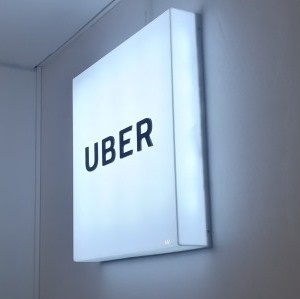Woods Rogers PLC, the ninth largest law firm in Virginia, has switched to BigHand’s document template management solution, BigHand Create, following a firm-wide Microsoft Office 2016 upgrade.
Chicago, IL (PRWEB) October 10, 2017
Woods Rogers, a law firm that appears on the 2017 BTI Law Firm Power Rankings list for “Best Client Relationships” and has been recognized by Corporate Counsel magazine for delivering “exceptional work”, has chosen to replace their template management solution with BigHand Create. The switch supports the firm’s ongoing commitment to innovation and utilizing technology to offer exceptional levels of customer service.
Prior to the switch, Woods Rogers’ document template solution experienced limitations in functionality. The firm’s template administrators were unable to create or update document templates without seeking external consultation and development. The software was slow and users experienced many glitches. In addition, following the firm’s upgrade to Microsoft Office 2016, their template solution became very slow and any efficiency benefits that the technology once offered were lost. Management decided to switch to a more robust solution that would not only allow them to continue offering high-quality, professional documents to their clients, but would save users time and reduce the firm’s document production overhead.
Jill Moomey, Applications & Training Specialist at Woods Rogers comments, “We started looking for a new template management solution in June of this year. We wanted a technology that would give us the freedom to create and edit templates when we needed to, without having to outsource the work or rely on third-party developers.”
Jill attended ILTACON in August 2017, with the intention of finding a new template solution. Jill comments, “It was crucial that we found a solution that was trusted in the market and easy for both our staff and template administrators to use. ILTACON gave us a great overview of the document automation solutions available, and for me, BigHand really stood out. I already knew that BigHand offered template and formatting tools, but it was a great opportunity to meet the team and see the technology in action.”
Within one month of meeting with BigHand at ILTACON, Woods Rogers moved to outfit the entire firm with BigHand Create licenses. Jill summarizes: “The whole process has been very slick. The BigHand team is extremely easy to work with, BigHand Create is a very clean product and overall, I’m thrilled with our decision.”
About Woods Rogers
Woods Rogers PLC is a Virginia-based, customer-centric law firm that’s been serving clients since 1893. The firm has over 75 attorneys, representing 19 practice areas and 100-plus related services. Woods Rogers supports the legal requirements of major corporations, small and mid-sized businesses, entrepreneurs and individuals in matters of business and corporate law, emerging growth companies, intellectual property, labor and employment law, litigation, tax, and trusts and estates.
About BigHand Create
BigHand Create is a Microsoft Office 2016 (32 and 64-bit) and Windows 10 compatible template management software. The solution is widely-recognized in the legal technology market and is consistently ranked in the top 3 document automation solutions in the annual ILTA technology survey.
BigHand Create integrates with BigHand’s other productivity software, BigHand Voice, to enable law firms to automate much of the document production process and allow users to create legal documents from dictations in just a few clicks.
BigHand is a legal technology company based out of Chicago, Eindhoven, London, Sydney, Temecula and Toronto, currently supporting over 280,000 users in 2,550 global organizations. BigHand is ISO27001 certified. For more information, visit http://www.bighand.com or follow @BigHandNA on Twitter or BigHand North America on LinkedIn.
For the original version on PRWeb visit: http://www.prweb.com/releases/2017/10/prweb14775067.htm
9(MDEwNzczMDA2MDEzNTg3ODA1MTAzZjYxNg004))


